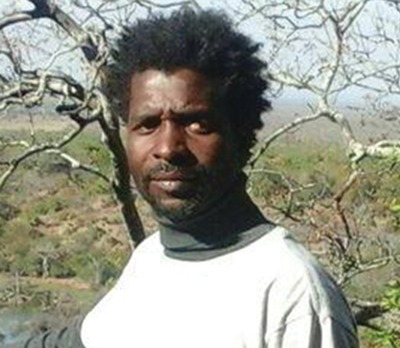
guest column
PRESIDENT Emmerson Mnangagwa’s administration this week continued its trajectory of outdoing itself in economic mismanagement when it announced that it is going to double what it paid farmers who delivered their maize before it reviewed the producer price upwards to $4 000 from $2 100 per tonne.
The unexpected and unbudgeted “windfall” to farmers could be a way to deflect attention from the maize import scandal that was broken by international media that Zimbabwe was buying maize at an inflated price of US$600/tonne from Tanzania. The import price that is being paid by the Mnangagwa administration is double the prevailing international maize price.
However, that is beside the point. Mnangagwa has been on record saying Command Agriculture was his brainchild. The murky agriculture financing scheme is driven by Mnangagwa’s adviser Kudakwashe Tagwirei through Sakunda Holdings.
Sakunda, for the second year running, is getting a free US$3 billion to fund agriculture, primarily the production of maize and soyabeans. However, the project, aside of the funding mechanisms, has failed dismally to provide a solution to Zimbabwe’s food security concerns.
The country this year has already sent out an appeal to the international community for food aid to feed 5,2 million people who are food insecure and of this number 2,3 million are from urban areas.
The government has been on record that food insecurity was a result of drought and Cyclone Idai, but new empirical evidence produced by the latest Economist Intelligence Unit (EIU) report on Zimbabwe shows that our government has been doing everything wrong.
“Productivity in the agriculture sector remains relatively low with national average of less than one tonne per hectare for maize compared to Zambia’s 2,5 tonnes/ha and South Africa’s five tonnes/ha. This low level of productivity is common across all other crops and even livestock production,” the EIU report says.
- Chamisa under fire over US$120K donation
- Mavhunga puts DeMbare into Chibuku quarterfinals
- Pension funds bet on Cabora Bassa oilfields
- Councils defy govt fire tender directive
Keep Reading
This is beyond poor management in our agriculture. It is shocking that after pouring in US$3 billion, our farmers need to crop an astonishing two million hectares of land only on maize so that we could meet self-sufficiency at the current rate of production.
I am not sure how many other millions of hectares of land would be needed for soyabeans to produce enough edible oils, how many other millions of hectares would be needed to produce enough beef and dairy products for Zimbabweans, let alone exports? It may mean Zimbabwe invading its neighbours Mozambique, Zambia and South Africa for extra land. Deliberately, I left out Botswana because it is mostly a desert anyway.
The EIU further argues: “Factors behind low productivity include low skills by farmers, low levels of mechanisation, use of inappropriate farming methods and farmer absenteeism from the plots and farms. To improve this, the 2020 National Budget should address the effectiveness of extension workers, including their mobility to improve knowledge transfusion to communal farmers.”
This sounds very good advice. We have heard it before and it was implemented in a manner that benefitted the political elites. Under the late former President Robert Mugabe, the Reserve Bank of Zimbabwe procured farming implements worth US$298 million under the farm mechanisation programme.
The implements that included high-tech tractors, boom sprays, combine harvesters, trailers, water bowsers, disc harrows and ploughs were distributed in an opaque manner. There is no existing list of the beneficiaries and poor Zimbabweans are carrying the can after Parliament passed the Reserve Bank of Zimbabwe Debt Assumption Act.
Concerns over farmer absenteeism and lack of extension services have been raised on a number of occasions with no immediate solution being found. It is high time we were frank with each other; those senior civil servants who want to be farmers should simply tender their resignation letters and go farming full-time. Mnangagwa should have a spine to release the Charles Utete land audit on multiple farm owners. Any excess land held should be distributed to real farmers who are prepared to stick it out on the land. The honeymoon for pseudo farmers should end.
Agribank, formerly Agriculture Finance Corporation, must be capacitated and do what it used to do during the Rhodesian era or soon after independence. Farmers should simply be given title to land and get loans using their land as collateral. Real farmers would borrow and not depend on direct subsidies like the present scenario. Government should only guarantee markets for farmers’ produce not this brazen and primitive accumulation that is ongoing under the guise of Command Agriculture.
Instead of guaranteeing Sakunda unlimited access to Treasury Bills and further plunging the country into debt, Finance minister Mthuli Ncube should start the process of capacitating agricultural colleges and extension services so that they can impart knowledge to “new” farmers on new seed varieties and management.
I may have rumbled a bit, but let me wrap by boldly stating that Mnangagwa should discontinue Command Agriculture. He should move in and not only release the names of RBZ farm mechanisation programme beneficiaries, but also make them pay. The Utete report should be made public and all those with multiple farms should lose them and real farmers get on the land.
We know it’s fashionable to be neo-liberals, but certainly Zimbabweans should not allow socialism for the rich, a small political elite and its cronies milking the State dry, through free land, free inputs, free implements and their debts being taken over by the State. Agriculture remains Zimbabwe’s quick route to economic recovery if done properly; and the bad guys are weeded out. Peace!











